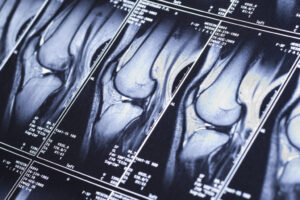CT Scans, MRI Scans, X-Rays: Anyone struggling with chronic pain will be all too familiar with the many scans and imaging ordered by physicians as they attempt to diagnose the source of the pain. While these scans or imaging can be helpful, there comes a point when they do more harm than good.
Many psychologists tend to agree that 80 percent of chronic pain is emotional. This does not mean it’s not real – it is still happening to you, after all – but it does mean that you have some control over it.
Stress reduction is a key focus in managing chronic pain. We learn how to respond to situations in such a way that it mitigates, rather than aggravates, the pain response. We practice mindfulness and steer clear of high-pressure environments. We are aware of our reactions to certain stimuli so we can avoid what makes us feel worse and embrace what makes us feel better. It’s a daily struggle, and sometimes, the things that we think will give us some peace will actually do the opposite.
The mechanics of pain: the elusive diagnosis
One of the biggest problems with chronic pain is that it is often impossible to quantify using diagnostic tests. Scans, imaging, and x-rays don’t usually show anything obvious, and this, in itself, can be highly stressful.

For many who suffer from chronic pain, there is a disconnect between the brain and the nerves. The brain sends out pain signals, and the nerves respond, causing pain response that doesn’t seem to be connected to a specific source. While there may be a physical component—an identifiable cause or injury that is the source of the pain—your body’s chemistry plays a significant role in how that pain is perceived.
Because of this, an accurate diagnosis can be elusive. As a result, your doctor may order various tests and scans in the hope of gaining a better understanding of where your pain is coming from.
Types of scans your doctor may order
Today, science is closer to finding a way to quantify pain using imaging. However, all we know right now is that chronic pain looks much different than acute pain in terms of how the brain responds. This corresponds to the current understanding that pain may continue and persist long after the physical cause of the pain has been removed.
Not all pain-causing issues will be picked up on a scan, but an MRI or a CT scan (CAT scan) may show something. MRIs are better for picking up nerve damage, as they show fine details of the spinal cord and neural system, including where the nerve roots exit the spinal sheath and whether or not they are being compressed, which might be the case if you had a herniated (bulging) disc.
A CT scan will highlight any problems with bone and tissue, but they won’t help much in determining nerve damage.
X-rays, also, are not very effective in picking up neural subtleties, but they will show if there is a break, fracture, or if something is out of place in the musculoskeletal system.

Why scans may not be the best idea for chronic pain
In the quest for an accurate diagnosis on the road to chronic pain relief, there are many tests, treatments, medications, and scans that can be applied. However, undergoing a scan when it’s not medically necessary may actually do more harm than good.
Read on for the argument against excessive scans for chronic pain:
Scans won’t make you feel any better
If your scan shows something specific that can be attributed to why you are feeling pain, that’s great. However, most of the time, they don’t show much of anything at all, and this can lead to more scans, more tests, and a great deal of anxiety. Without a clear diagnosis, stress can be exacerbated, and this actually has the potential to increase chronic pain.
Every scan comes with a risk
Each time you have a scan or an x-ray, you are exposing yourself to high doses of radiation, and this can pose a cancer risk. If you are of childbearing age, you should be especially mindful of this risk and avoid having unnecessary scans.

MRI scans use radio waves and a high-powered magnet to create their images. This means that people who have pacemakers, cochlear implants, implanted neurostimulators, certain IUDs, or any iron-based metallic implants should not participate in an MRI under any circumstances.
Additionally, anybody who has surgical wire mesh, metal sutures, pins, plates, or screws anywhere in their bodies should avoid MRIs. An MRI is also contraindicated for patients with epilepsy, and pregnant women should avoid having this type of scan if at all possible.
Your scan may show something unrelated to the pain
Many people have abnormalities in their spine or other parts of their body. They may go through their whole lives not knowing about the issue because it doesn’t cause them pain or have any measurable impact on their quality of life. For example, many people live with scoliosis or osteoarthritis and do not suffer any pain from it. If there is no pain, and if it isn’t causing any mobility issues, there is little reason to be concerned. It is certainly no cause for alarm.
If your scan shows abnormalities that are unrelated to the pain you are experiencing, it may lead to more testing, procedures, and even having surgery that you don’t really need. At the very least, it may cause you a great deal of stress and worry, which is a common trigger for chronic pain.

When scans make sense
If your symptoms are worsening or if there is evidence of nerve damage, a scan may tell you and your doctors more. Signs of a serious problem that might indicate the need for a scan might include:
- Sudden, unexplained weight loss
- A history of cancer
- High fever
- Infection
- Loss of bladder or bowel control
- Loss of muscle strength
- Numbness and weakness/loss of feeling in the legs or limbs
Unless you have one or more of these symptoms, a scan will not likely tell you and your doctor anything you don’t already know.
Sometimes, your doctor will order a scan simply to rule out other, more severe issues on the road to a pain diagnosis. If you suffer from fibromyalgia, for example, blood tests may fail to show any anomalies. If so, the next order of business may be to see if there is any nerve damage or abnormalities that are affecting the brain or spinal cord.
With fibromyalgia, especially, diagnosis is a process of elimination, and a physical examination is generally the most reliable approach. Scans for this purpose are usually inconclusive.
Your pain is real
Scans may seem like a good idea, especially when your healthcare practitioner can’t find a specific cause for your chronic pain. Inconclusive scans can lead to unnecessary procedures and treatments that can actually amplify the stress and frustration you are already feeling.
If you find yourself in this situation, your best course of action is to focus on the things in your life have a noticeable impact on your pain and its intensity. Practicing mindfulness and self-care is a critical defense in the fight against chronic pain. While medicines and certain procedures may work for some, they may not bring relief for others and may actually make the situation worse.
If you are struggling with chronic pain in Long Beach and don’t know where to turn, we can help. Reach out today to get started. Visit us at 3939 Atlantic Ave, Suite 102 Long Beach, CA 90807 or call (866) 766-8776 for immediate assistance.





9 thoughts on “Chronic Pain: When Scans Do More Harm Than Good”
I got radiation poisoning from an abdomen and pelvic CT scan. It damaged my nerves so bad I threw up for 6 months and lost 35lbs and felt like I was being burned alive. I was almost completely castrated from the 1000 xrays I was unkowingly exsposed to. Do not get a CT scan especially if you are over 200lbs and at risk of overexposure. The worse decision I ever made in my life and these CT scans are casually reckomended to the public by practisioners. Absolutely unnacceptable.
Hi mich, i am having shoulder blade numbness and pain after ct scan. But doctor failed to diagnosis me and said it due to anxiety. Do you manage to recover from nerve issue? Thanks. I need your advice.:)
Interesting article
Yes it is
I went back to the ER at the VA today and the 1st time I could lay down and not move. This sciatica pain I am witnessing today is the worst it ever has been In my life. They had me do a CT scan and they say they did not see anything?!? I know I did not lay still enough for it. There is no way that there isn’t anything to see? I had a S1 L5 surgery fusion surgery back in November 2019. It left me worse off than before. Everyone told me not to do it and now left like this. I am diagnosed with fibromyalgia, Osteoarthritis and Chronic pain. I have a MRI next Sat and cannot wait for it. This is a great article and I try so hard to do mind over matter
God bless everyone who experiences Chronic pain 🙏
Sounds to me you have a case of Segment adjustment Syndrome. Look it up.
I had a pacemaker for 10years I was good then I had a mammogram at 3different hospitals they insisted that the pacemaker had to come out for radiotherapy to stop cancer of 2mile dump on my nipple of 19 sessions of radiotherapy the pacemaker was not put back in since this has happened my lift has deteriorated and cant sleep because of what they have done its damage my teeth nerves and nerves in my body and no hair follicles cave in throat at the back which is burning sensation 24-7days a week. Go to doctor who has now put me under mental health act which is wrong every consultant is in denial of what they have done .Heart consultant said to my partner that my heart was good. But a nether hospital has said heart is bad.
Hi mich, i am having shoulder blade numbness and pain after ct scan. But doctor failed to diagnosis me and said it due to anxiety. Do you manage to recover from nerve issue? Thanks. I need your advice.:)
I am interested more in this nerve damage caused by scans. I have a feeling I have some nerve damage from a different kind of scan but wanting to find out more before I go jumping the gun.